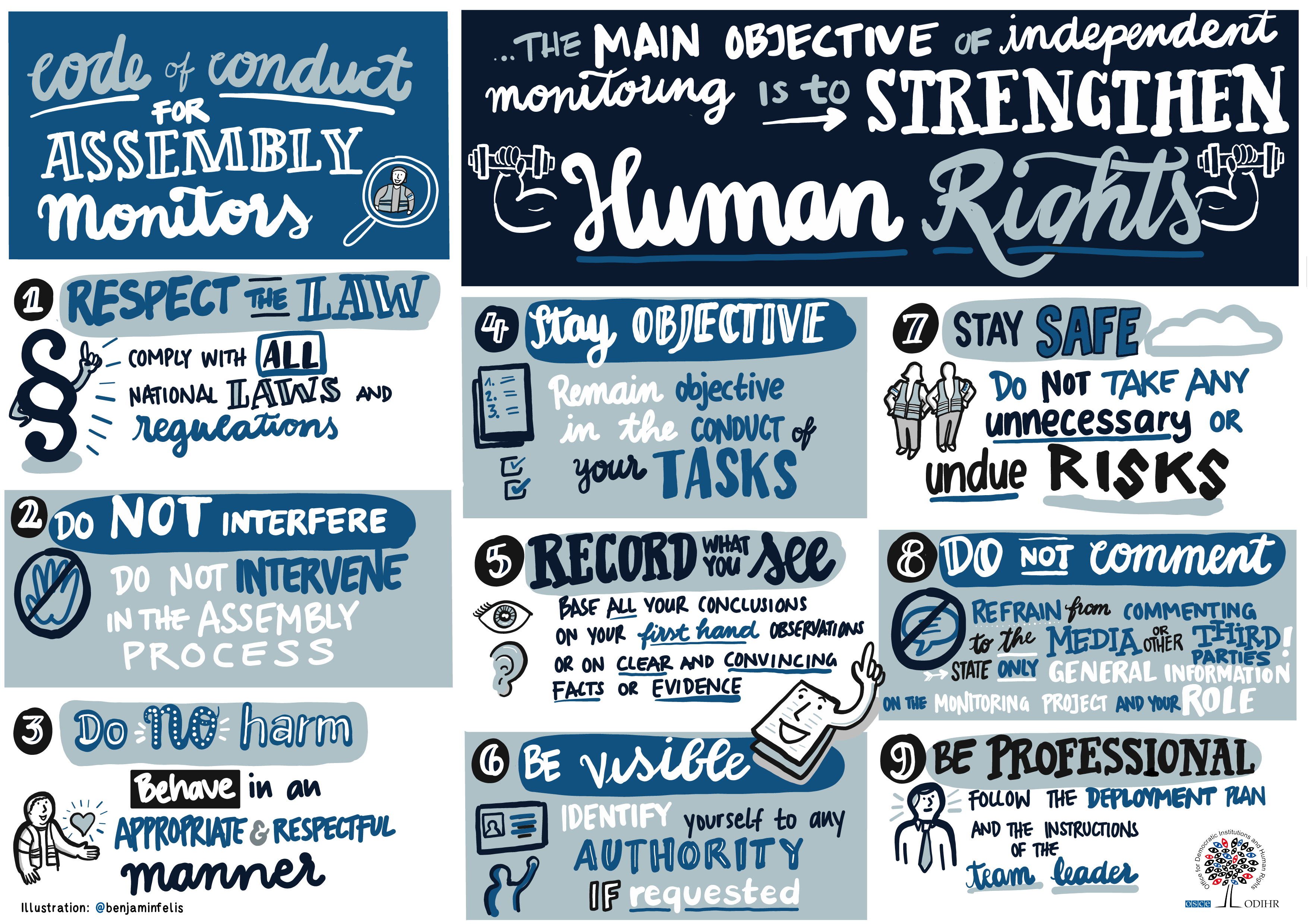As a monitor, you have to work to high ethical and professional standards to ensure that your monitoring findings can be accepted as legitimate and bear scrutiny. In this module, we will walk you through a number of monitoring principles that you should keep in mind and respect at all times during your assembly monitoring work.
In Module 5, you will:
● Recognize the importance of complying with a number of basic principles and apply them in your assembly monitoring work
● Understand the importance of working in accordance with a code of conduct outlining the core principles and ethical norms of your assembly monitoring work
Meet the trainer:

Main takeaways:
✓ To ensure effective human rights monitoring, it is essential to comply with a number of basic principles: respect for the law, objectivity, non-intervention, transparency and visibility, do no harm and be mindful of safety and security, and professionalism.
✓ Monitors should be familiar with the applicable legal framework.
✓ Monitors should be objective at all times and base their observations only on what they have seen and heard. They should not report on hearsay.
✓ Monitors should not provide advice to anyone involved in an assembly or voice opinions about the event to the media or other third parties. Any comments should be limited to general information about the monitoring project and monitors’ role.
✓ Monitors should be open and transparent about the objective and basic methodology of their monitoring project. While monitors should have a form of personal identification or other visibility items with them at all times, their constant display is not strictly necessary.
✓ Monitors should be mindful of everyone’s safety and security and not take unnecessary or undue risks. They should ensure the safety, security and confidentiality of the information collected.
✓ Monitors should behave professionally, appropriately and respectfully at all times, adhere to the deployment plan, follow the monitoring coordinator’s instructions, and respect their teammates without discrimination. In case of disagreement within the team, monitors should seek clarification and record all views.
✓ It is a good practice to work in accordance with a code of conduct outlining the core principles and ethical norms or values of the monitoring work.
Before moving on to the quiz, we recommend you to review the main takeaways of this module, and to check the additional resources provided under the “Materials” tab above.
Recommended resources:
● OSCE/ODIHR Handbook on Monitoring Freedom of Peaceful Assembly, Second Edition, “I.4.6. Monitoring principles and code of conduct for assembly monitors”.
● OSCE/ODIHR and Council of Europe Venice Commission, Guidelines on Freedom of Peaceful Assembly, Second Edition. Section B, Explanatory Notes: “8. Monitoring Freedom of Peaceful Assembly”.
● OHCHR Manual on Human Rights Monitoring. “Chapter 02: Basic Principles of Human Rights Monitoring”.
Handout:





